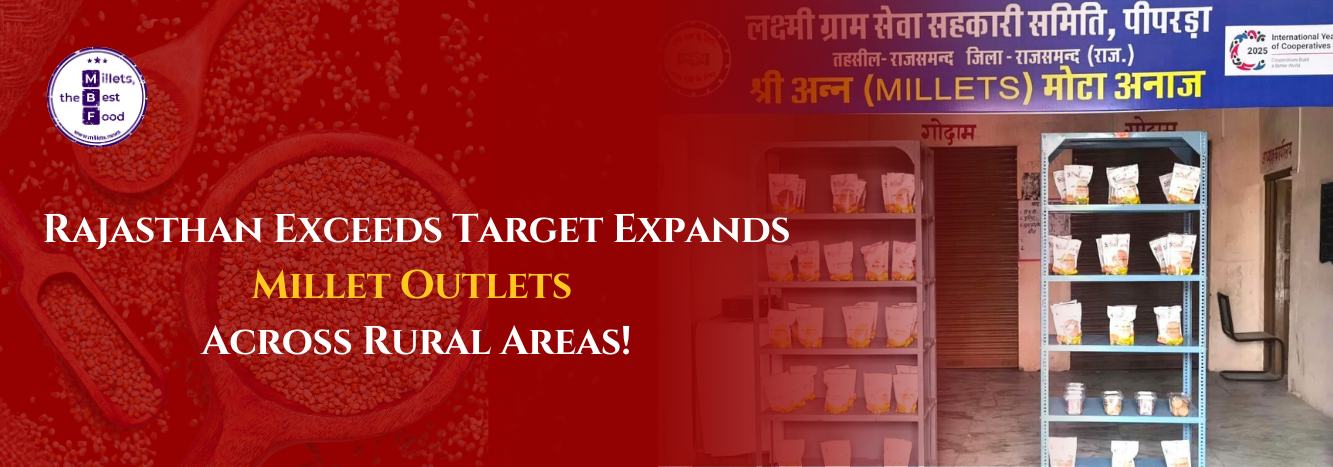
The Rajasthan Government has gone beyond its initial goal and successfully established 152 millet outlets in rural areas of the State, a move that strongly promotes nutritious and sustainable food choices for villagers. This achievement surpasses the original target of 34 outlets by more than four times, reflecting the State’s commitment to creating healthier food habits and providing easy access to millets at reasonable prices. The outlets have been established through cooperative societies, ensuring that villagers benefit directly from this initiative.
According to Principal Cooperative Secretary Manju Rajpal, the millet outlets are not only selling items produced by cooperative institutions but are also providing a platform for products made by women’s self-help groups. This inclusion supports women entrepreneurs and adds to the diversity of products available in the stores. Villagers are now showing greater interest in incorporating millet-based foods into their daily diets, encouraged by affordability and variety.
The initiative has been implemented through the Rajasthan State Cooperative Consumer Federation, District Cooperative Consumer Societies, Kraya Vikray Sahakari Samitis, and village cooperative societies. These organizations are working together to spread awareness about the benefits of millets, particularly as an alternative to rice and wheat. By making coarse grains more accessible, the government is addressing issues of nutrition while also contributing to sustainable farming practices.
The decision to open millet outlets was first announced in the 2025–26 State Budget as part of a broader vision to promote employment and income generation through cooperative efforts. Union Home and Cooperative Minister Amit Shah had inaugurated 64 millet outlets earlier in July during the Sahakar Evum Rozgar Utsav in Jaipur district, setting the momentum for further expansion across Rajasthan.
Products available at these outlets have quickly gained popularity among villagers. Some of the most sought-after items include mixed millet flour, roasted jowar, roasted bajra, ragi biscuits, oat biscuits, ragi flakes, and sanwa roasted flakes. The outlets also feature coarse grains such as sanwa, kutki, kodo, kangani, and small kangani, ensuring a wide variety of choices for consumers. This diversity is helping millets regain their importance as staple foods.
The impact of this initiative is already visible, as cooperative societies are witnessing increased income levels. By linking nutrition, employment, and rural empowerment, Rajasthan’s millet promotion drive stands as a model for other States in building a healthier and more sustainable future.
© 2023 - 2026 Millets News. All rights reserved.